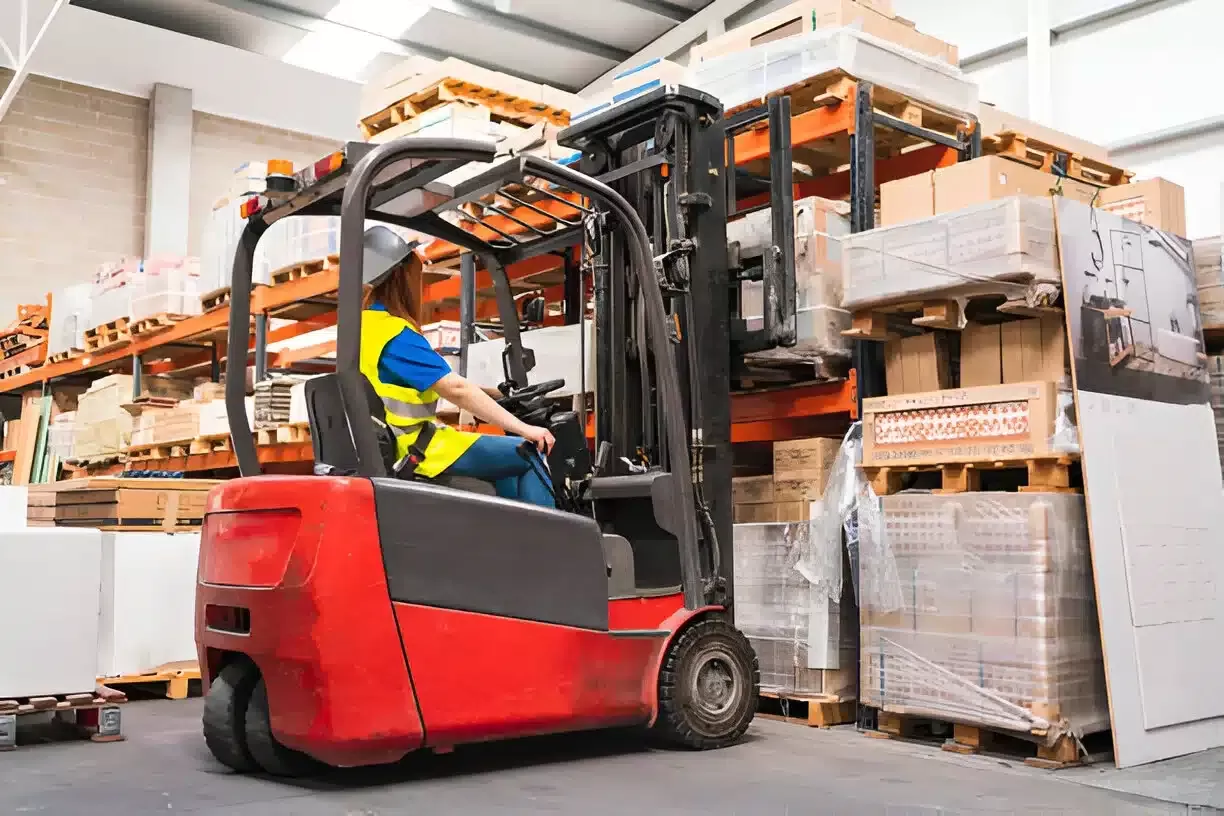
Matching Forklift Capacity To Your Business Requirements: A Step-By-Step Guide
Choosing the right forklift with an ideal capacity for your business is crucial for efficient operations and productivity. The capacity of your forklift determines how much weight it can safely lift and transport, affecting productivity, safety, and overall efficiency. Making the wrong choice can lead to operational inefficiencies, safety hazards, and unnecessary costs. So, how do you make the right decision?
Here’s detailed information listed down by our experts to guide you through everything you need to know to select the perfect forklift capacity for your business.
Why a forklift’s capacity matters
A forklift’s capacity is more than just a number; it directly impacts the efficiency and safety of your operations. The capacity refers to the maximum weight a forklift can handle at a specified load centre. Exceeding this capacity can lead to accidents, damaged goods, and even forklift tipping—a serious safety concern.
Beyond safety, choosing the right capacity ensures that your forklift can handle your typical loads without strain, reducing wear and tear on the equipment and minimising downtime. In short, the right capacity forklift can save you money, reduce risk, and improve productivity.
Key Considerations for Choosing a Forklift with an Ideal Capacity
Understand the load types of your products
Different businesses handle different types of loads. A warehouse dealing with large, bulky items may require a forklift with a higher capacity compared to a facility handling lighter, smaller items. Consider the average weight, size, and shape of your loads when determining the ideal capacity of your forklift.
Evaluate the lift height needed for your products
The height at which you need to lift loads is a crucial factor. The higher you need to lift, the lower the forklift’s capacity becomes. If your operations require frequent high lifts, you’ll need a forklift with a higher base capacity to accommodate the reduction in capacity at elevated heights.
Consider the load centre
As mentioned earlier, the load centre plays a vital role in determining forklift capacity. Ensure that your typical loads are well-centred to maintain the forklift’s stability and effective capacity. If you deal with irregularly shaped or oversized loads, choose a forklift with a higher capacity.
Factor in Attachments
Forklift attachments such as side shifters, clamps, or fork extensions are often necessary for specialised tasks. However, these attachments add weight and can reduce the forklift’s effective capacity. Always check the manufacturer’s specifications for capacity reduction when using attachments for your forklifts.
Think about operational space
The physical environment in which your forklift will operate can influence your capacity choice. In tight spaces or narrow aisles, you may need a more compact forklift with a lower capacity. Conversely, in wide-open spaces, you might have more flexibility to choose a higher-capacity model.
Frequently Asked Questions on Forklift Capacity
What is forklift capacity?
Forklift capacity is the maximum weight a forklift can lift safely without compromising stability. It’s essential to understand that this capacity is based on the load being centred at a specific point—typically 24 inches from the carriage. If the load is not centred correctly, the effective capacity of the forklift decreases.
How to determine the right forklift capacity
Start by analysing your typical loads. Consider the heaviest and most common items you’ll be handling. If you often lift loads that weigh 3,000 lbs, you’ll need a forklift with at least a 3,000 lb capacity. But remember, if those loads are oversized or unbalanced, you might need to choose a higher-capacity forklift.
What factors can affect forklift capacity?
Several factors can affect the forklift’s effective capacity, including:
- Load Center: The farther the load’s centre of gravity from the forklift, the lower will be the effective capacity.
- Attachments: Forklift attachments like clamps or side-shifters can reduce the capacity.
- Height: The higher you lift a load, the lower the effective capacity will be due to the shift in the centre of gravity.
- Tilt: The tilt of the forklift mast can also affect the balance and capacity.
What are the common forklift capacities?
Forklifts come in various capacities, ranging from 3,000 lbs to over 100,000 lbs. For most warehouses, a 3,000- to 5,000-pound capacity forklift is sufficient. However, for heavier applications like shipping yards or manufacturing plants, higher-capacity models may be necessary.
Should I consider future needs when choosing forklift capacity?
Absolutely. Businesses grow, and so do their material handling needs. If you foresee an increase in load sizes or changes in your operations, it’s wise to invest in a forklift with a higher capacity than your current needs to avoid frequent upgrades.
Strategies for Choosing the Right Capacity
- Consult with a Forklift Expert: Professionals can assess your specific needs and recommend suitable forklift models.
- Consider a Variety of Options: Explore different forklift brands and models to find the best fit for your budget and requirements.
- Prioritise Safety: Ensure that the forklift you choose has adequate safety features to protect your operators and equipment.
- Evaluate Maintenance Costs: Factor in maintenance and repair costs when comparing different models.
- Consider Future Upgradability: Some forklifts offer options for upgrades and attachments, which can be beneficial for future needs.
Empower Your Business with a Forklift with the Capacity
Choosing the right forklift capacity is not just about selecting a machine—it’s about optimising your operations, ensuring safety, and supporting your business’s growth. By carefully considering your load types, lift heights, and operational needs, you can make a decision that drives efficiency and reduces costs. At Aussie Forklifts, we understand the importance of matching the right forklift to your business needs. Our experts are here to help you find the perfect forklift capacity to enhance your warehouse operations and support your long-term success.